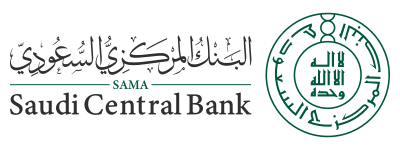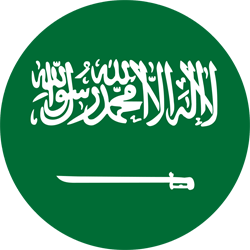
The policy of Naif Odah Al-Harbi Exchange Company is to adhere to all the rules of the Saudi Central Bank (SAMA), especially those related to combating money laundering and terrorist financing, and the related rules and regulations, which are the basis on which the policies of Naif Odah Al-Harbi Company are based in this regard. The Saudi Central Bank issued these rules with the aim of supporting its efforts to combat money laundering, terrorist financing, and other criminal financial activities. Its primary objective should include:
- Ensuring the compliance of banks and exchange companies operating in the Kingdom of Saudi Arabia with the Kingdom of Saudi Arabia’s anti-money laundering system and its executive regulations.
- Helping banks and exchange companies operating in the Kingdom of Saudi Arabia to comply with the banking control system, the anti-money laundering system, the instructions of the Saudi Central Bank, and all relevant United Nations Security Council resolutions in this regard.
- Implement systems and policies to prevent, detect, monitor operations and report money laundering and terrorist financing activities in accordance with the Basel Committee Principles, the 40 Recommendations, and the nine Special Recommendations of the International Financial Action Task Force (FATF) on combating money laundering and terrorist financing.
- Protecting banks and exchange companies that conduct their activities in the Kingdom of Saudi Arabia from being exploited as channels for passing illicit funds resulting from money laundering, terrorist financing, and other criminal financial activities.
- Promoting, protecting and preserving confidence in the integrity and reputation of the banking and financial systems in the Kingdom of Saudi Arabia.
- Providing security and an appropriate level of protection for customers.
In addition to the instructions and rules of the Central Bank of Saudi Arabia; Naif Odah Al-Harbi Company applies all the recommendations issued by the Financial Action Task Force (FATF) updated in February 2012 and all other guidelines issued by it, so that they are taken into account during the annual evaluations of anti-money laundering and terrorist financing activity.
Naif Odah Al-Harbi Company has a distinguished reputation for the quality of services it provides to customers, as it maintains its reputation and position by applying know your customers policies and procedures (KYC Policies & Procedures) and submitting reports related to combating money laundering and terrorist financing to the competent authorities, and training various functional cadres to detect and track cases of money laundering and terrorist financing.

Naif Odah Al-Harbi Company is committed to developing policies in line with international standards and best practices. Policies and procedures are reviewed periodically. External auditors also examine anti-money laundering and terrorist financing activity and report their observations to senior management on a permanent and ongoing basis.
Money Laundering
The Central Bank of Saudi Arabia’s definition of the process of money laundering is to commit or attempt any act with the intention of concealing or camouflaging the true origin of funds acquired in violation of Sharia law or regulation and making them appear to have a legitimate source – in other words, it is to hide or obscure the true nature of the funds and properties or their source or Its location, the method of disposing of it, how it is transferred, who owns it, or the rights related to the proceeds, knowing that these properties are the proceeds of criminal activities.
Regardless of the criminal activities from which these properties arose, money launderers use many methods to launder this money during the stages of depositing, covering, and merging to transform these illicit proceeds into money or goods that are considered legal. This involves dividing the money into small amounts that do not raise suspicions, and then Transfer it as a bank transfer and use it to purchase real estate, stocks, luxury goods, and invest in commercial projects.
Financing Terrorism
The Anti-Money Laundering System defines criminal activity as any activity that constitutes a crime punishable in accordance with Sharia law or law, including the financing of terrorism, terrorist acts, and terrorist organizations. The executive regulations describe the financing of terrorism, terrorist acts, and terrorist organizations, as it includes funds derived from legitimate sources.
The Kingdom of Saudi Arabia is committed to the Security Council and United Nations resolutions on combating money laundering and terrorist financing, and has issued laws that punish acts of money laundering and terrorist financing. The Saudi Central Bank also requires banks and exchange companies to adhere to the recommendations and guidelines of the International Financial Action Task Force and the United Nations.
In addition, the FATF recommendations should include persons who collect funds directly and indirectly for the purpose of using them in illegal ways, in whole or in part, through:
- Carrying out terrorist acts.
- Organizing terrorism.
- Carrying out individual terrorist acts.

